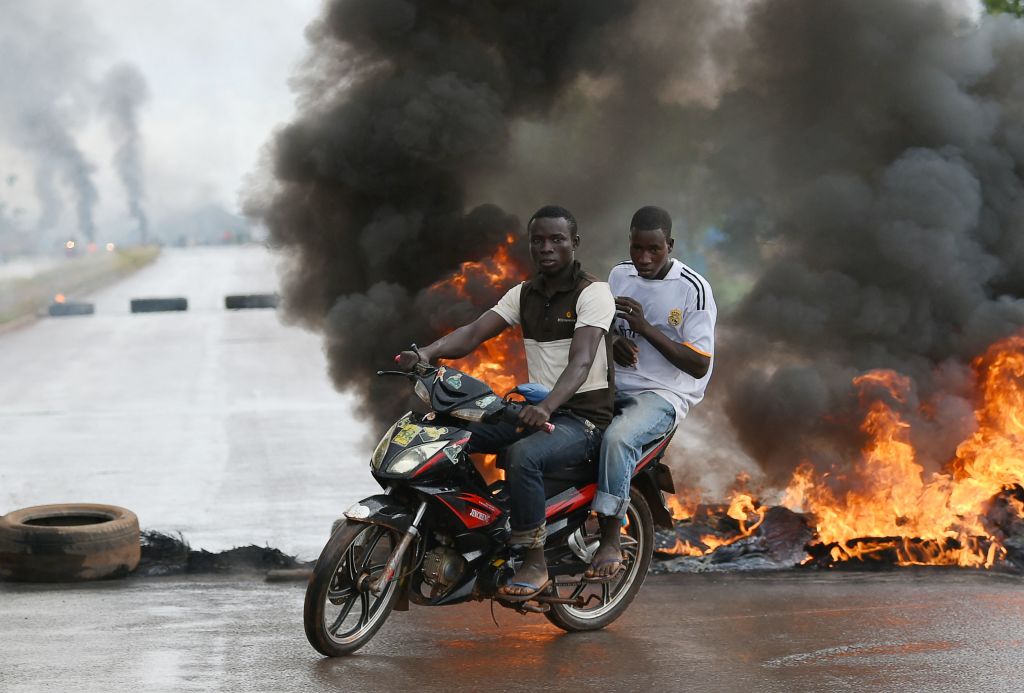Motorbike Trafficking Drives Instability Throughout the Sahel
ADF STAFF
Seven Nigerien Soldiers died during a late September battle with hundreds of insurgents on motorbikes in Kandadji, a southwestern Nigerien town near the tri-border area with Burkina Faso and Mali. Five more Soldiers died in a traffic wreck as they responded to the fighting.
Although it was not clear who launched the attack, both the Jama’at Nasr al-Islam wal Muslimin (JNIM) and Islamic State Sahel (IS Sahel) extremist groups operate in the area, which has emerged as the epicenter of insurgencies in the region. Terrorist groups, particularly JNIM, have used motorbikes in swarming attacks throughout the region for years.
In 2020, a 57-year-old woman named Hawa was at her home in the northern Bukina Faso town of Boukouma when her nephew alerted the family that armed men were approaching on motorcycles. Within seconds, two dozen men opened fire on the town.
“They killed my husband and his brother when they had their hands in the air,” Hawa told the United Nations Refugee Agency. “I’m so traumatized that I can’t even remember what happened. I don’t know what I’m saying.”
A motorbike’s speed, fuel efficiency, durability on rough roads and the ability to traverse off-road areas makes it an attractive option for terrorists, and demand for motorbikes has led to a widespread and profitable trafficking trade in the region.
JNIM buys hundreds of motorbikes each month, according to Eleanor Beevor, a senior analyst in the West Africa Observatory at the Global Initiative against Transnational Organized Crime (GI-TOC).
The organization prefers to purchase brand-new motorbikes — often models of the Aloba, Boxer, Hajoue and Sanili brands — rather than used ones from the region’s massive stock of stolen motorbikes, Beevor wrote in a new GI-TOC report titled “Motorbikes and Armed Groups in the Sahel: Anatomy of a Regional Market.”
Trafficked motorbikes are often diverted from the legal supply chain upon their arrival in major seaports in Benin, Nigeria and Togo.
Motorbike dealers and law enforcement officers interviewed by Beevor estimated that 40% to 50% of motorbikes that flow through major ports are not declared. They typically wind up in the Sahel on large trucks where they are hidden beneath other goods, or they are ridden over borders.
Local networks work with importers who are typically members of a diaspora group with connections in their home country. A motorbike trader in Cinkassé, Togo, for example, told Beevor that many motorbikes come from Asia to Lomé, Togo, via a subsidiary of Indian nationals in the port city. The trader said security forces are often paid not to search their cargo.
“On the question of whether the motorcycles comply with customs and regulatory standards to be sold on the territory, we don’t try to find out,” the trader told Beevor. “We pay the lowest price, and we choose the supplier with the capacity to sell us a large quantity, because we don’t want to come back every time as it would be too visible. We sell motorcycles in Burkina Faso and Niger.”
Sellers in several areas controlled by extremist groups say the organizations pay above market value for monthly deliveries of more than a dozen motorbikes at a time.
“For me, it is more profitable to work with these armed groups because they do not negotiate the price and pay the money on the spot,” a trader in Burkina Faso’s Est Province told Beevor. “I can even borrow money to buy more motorcycles. In their areas, I don’t pay taxes and my goods are safe.”
In response to threats stemming from motorbike trafficking, Benin, Burkina Faso, Mali and Niger have banned motorbikes in certain areas, while Burkina Faso also imposed sales and import bans on some brands. However, there is little evidence that the bans are effective long-term.
In June 2021, Burkina Faso banned motorbike riding at night in the Est and Sahel provinces. That year, JNIM was responsible for 372 violent incidents against civilians or armed forces in those areas. Although the ban was in place through 2022, JNIM was responsible for 365 such incidents in the same provinces, according to data from the Armed Conflict Location & Event Data Project.
The bans also affect civilians who rely on motorbikes for legitimate livelihoods and hurt legal motorbike traders while boosting sales of traffickers.


Comments are closed.